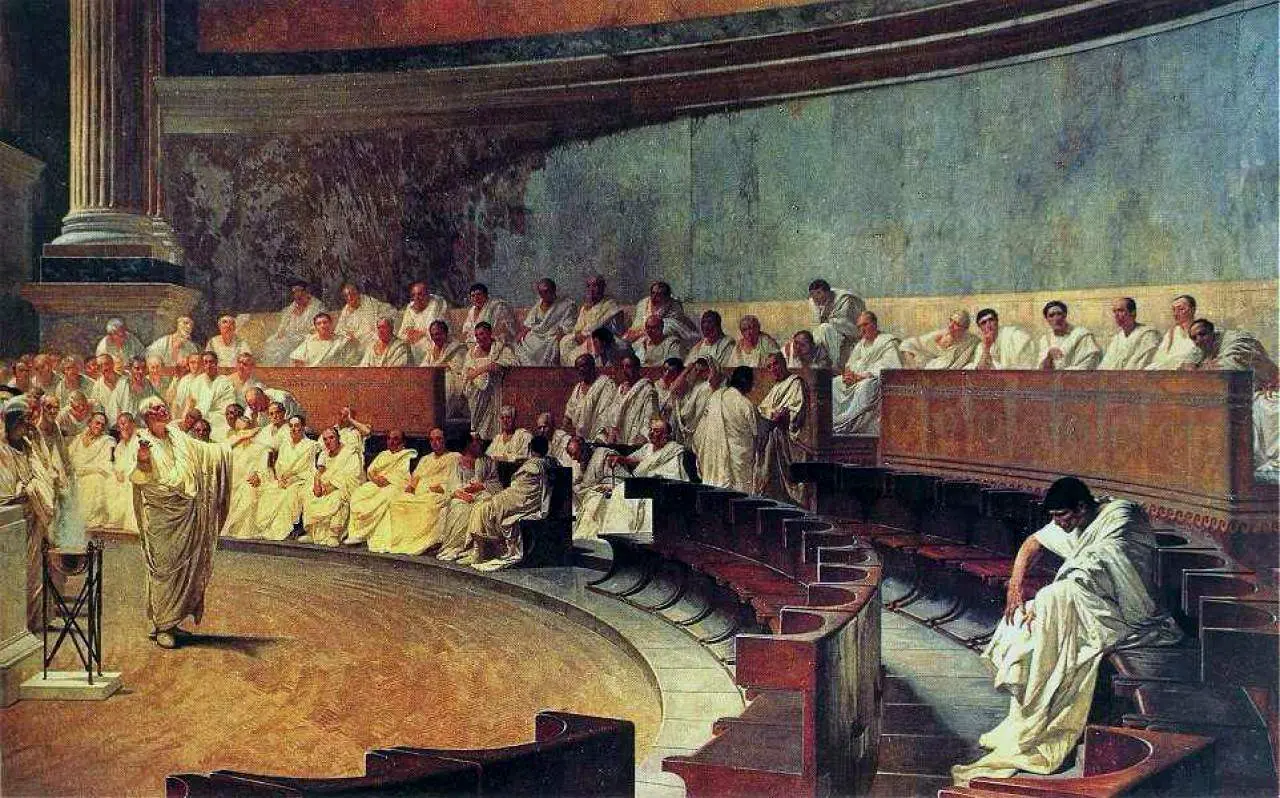Long before Alexander Hamilton’s affair or Watergate’s cover-up, the senator Lucius Sergius Catilina – better known as Catiline - plotted to bring down the Roman Republic, a government built on elected office, civic duty and fierce resistance to tyranny.
Now, a forgotten Tudor translation of that conspiracy has been published for the first time. The Coniuracion of Lucius Sergius Catelina, edited by Dr John Colley, Research Fellow at St John’s, is the earliest known English translation of a Roman history– Sallust's gripping study of conspiracy only decades before the collapse of the Republic.

The Conspiracy of Catiline was written in Latin by the Roman historian Sallust in probably the late 40s BCE. Sallust, a contemporary and associate of Julius Caesar, chronicled the events of 63 BCE, when Catiline and his supporters, frustrated by poverty and political exclusion, conspired to seize power and assassinate leading Roman citizens. Sallust’s account is one of the most important sources on Catiline’s conspiracy to survive.
When the plot was exposed, Catiline fled Rome and died in combat alongside his army of supporters. For Sallust, the episode symbolised the moral decline of the Republic – a warning that personal ambition could destroy public virtue.
Around 1,500 years later in early Tudor England, an unknown translator turned Sallust’s Latin history into English, using a printed edition circulating at the time. That translation survives in only one handwritten copy, known to palaeographers as a manuscript witness, and is now held in the University Library in Cambridge.

Dr Colley’s edition, for the Early English Text Society, publishes that text for the first time. His revealing introduction and notes explain how it was produced and what it suggests about learning and politics in early Tudor England. Its lessons about corruption and power still resonate today.
Dr Colley explained: “This is the first time this important Tudor text has ever been edited or printed. I trace the history of the surviving manuscript and place the translation in its historical and cultural setting, showing how it fits into the world of early Tudor humanism. This is a new piece of a bigger puzzle about how Sallust was read in both England and Continental Europe around 1500.
“The edition’s notes examine contemporary scribal practices, address historical and linguistic issues, and compare this English version with the Latin texts of Sallust that would have been known to the translator.”
The edition appears alongside Dr Colley’s new monograph, Humanism, English Literature, and the Translation of Greek, 1430–1560 (Oxford University Press), which explores how Greek learning shaped English writing and thought in the early Renaissance.The book shows how English writers of this period struggled to master a language few could read, yet saw as a key to understanding both classical and Christian ideas.
Both books will be launched at St John’s College on Wednesday 5 November, from 6.15pm-7.15 pm, in the Old Divinity School, with brief talks by Professors Daniel Wakelin (Oxford)and Richard Dance (Cambridge).
Admission is free and open to all.
The Coniuracion of Lucius Sergius Catelina
Humanism,English Literature, and the Translation of Greek, 1430–1560